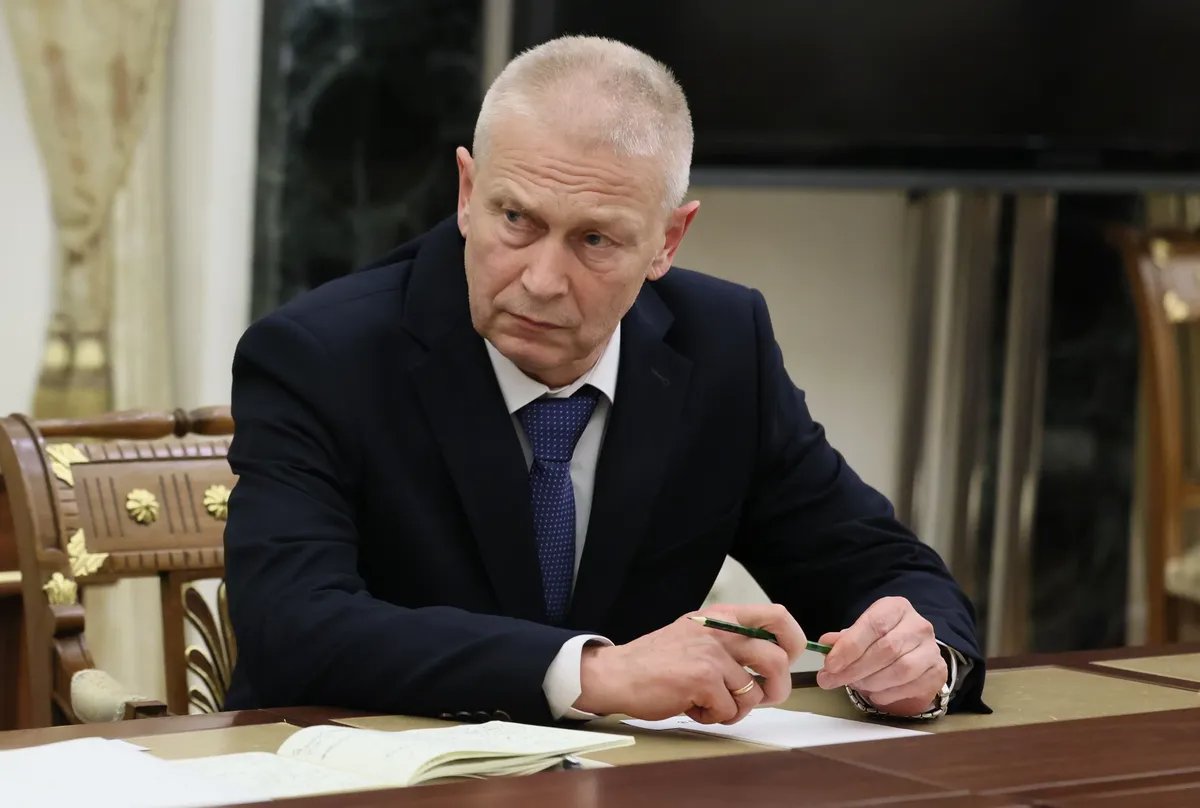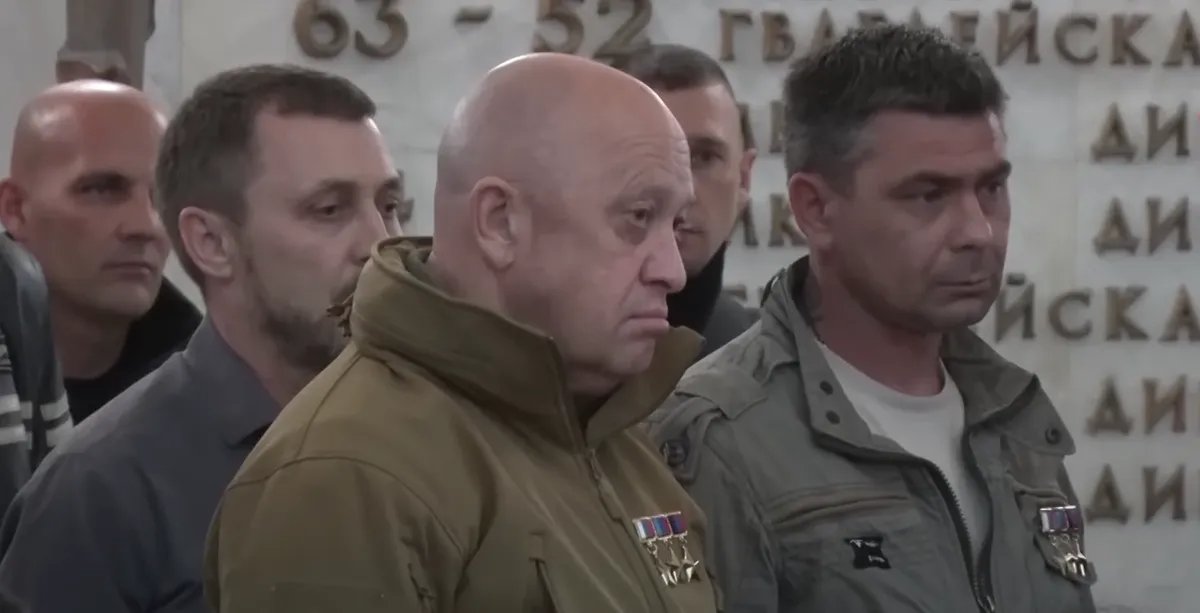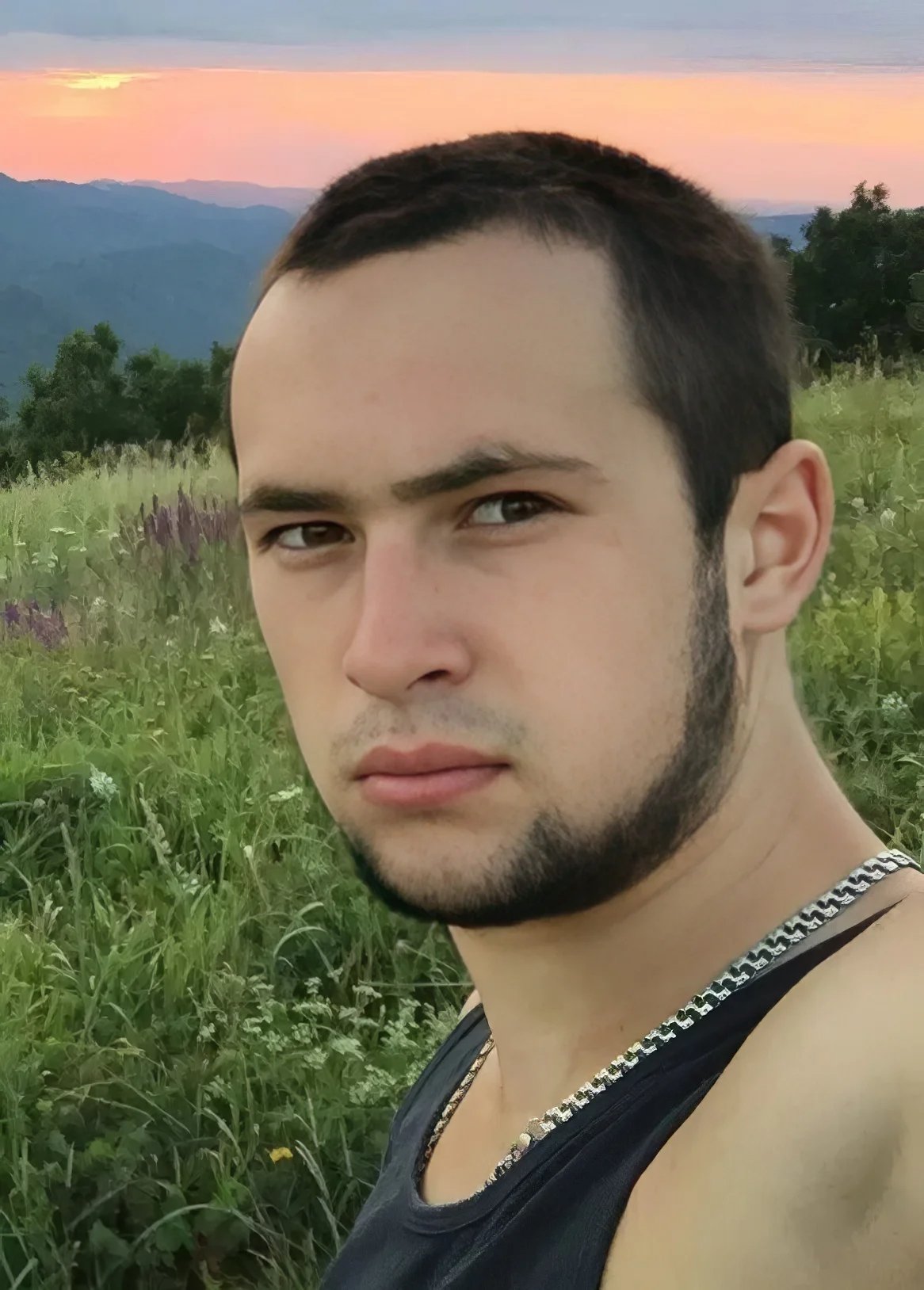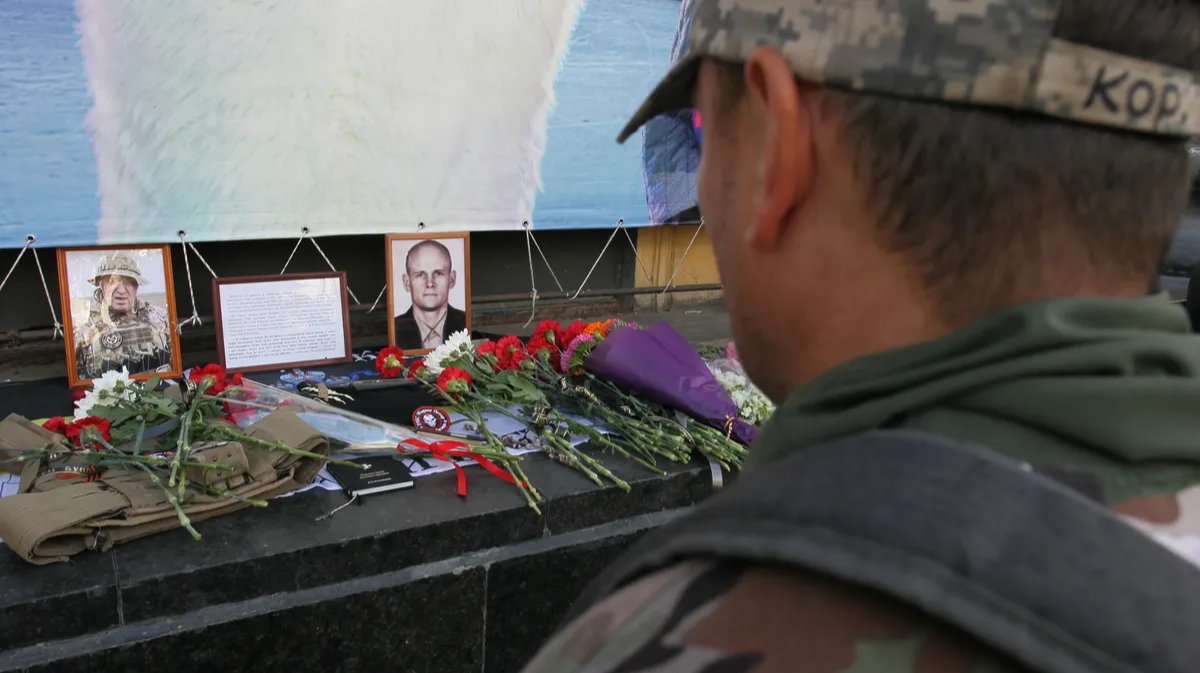Last week, Russian President Vladimir Putin met with Andrey Troshev, one of the former leaders of the Wagner Group, and tasked him with creating what he called “volunteer units” to be made up of the mercenary organisation’s former fighters and placed under the control of Russia’s Defence Ministry.
However, another senior Wagner commander, Anton Yelizarov, maintains that most of the group’s fighters are still refusing to work for the Defence Ministry, suggesting that the once-mighty Wagner Group has split in two.
Former editor-in-chief of the independent Echo of Moscow radio station, Alexey Venediktov, defined the two camps as a group of Kremlin loyalists under the command of Troshev who have agreed to work under the Defence Ministry in operations in Africa and Ukraine, and a group of “disloyal” fighters who were “leaving their base in Belarus and going to Ukraine under the command of Yelizarov”.

Andrey Troshev meets with Vladimir Putin at the Kremlin, 28 September 2023. Photo: Mikhail Metzel / Kremlin / Pool / EFE / EPA
Troshev’s Kremlin ‘loyalists’
“Troshev is often referred to as Wagner’s chief of staff, but he never held that position,” says Denis Korotkov, an expert with the Dossier Centre, which documents criminal activity among Kremlin associates.
Describing Troshev’s role as something akin to that of an executive director in the days before Prigozhin would publicly acknowledge that he had anything at all to do with the Wagner Group, Korotkov says that Troshev mainly dealt with administrative issues while Dmitry Utkin, Prigozhin’s closest associate (who also died in the August plane crash) headed military operations.
As a young man, Troshev served in Afghanistan, for which he received two Orders of the Red Star. Later, he left the military and began a career in the police force where he worked in a special rapid response unit until he was dismissed in 2012.
“They say that Troshev began to drink rather heavily. It’s quite possible that this was the reason for his dismissal from the police,” Korotkov says. The disenfranchised colonel went on to work for Prigozhin’s security service and then for the Wagner Group.
In June 2017, Andrey Troshev was admitted to a St. Petersburg hospital after severely overdosing on alcohol. Upon his admission, the former colonel was reportedly unable to even state his name, and hospital staff found 5 million rubles and $5,000 in cash, as well as maps of Syria, and a plane ticket to Krasnodar on his person.
Putin first suggested that Troshev should assume control over the remnants of the Wagner private army at a meeting with Wagner commanders on 27 June, less than a week after Prigozhin’s failed mutiny. A follow-up meeting took place in September, after which Kremlin spokesperson Dmitry Peskov confirmed that Troshev was working for the Ministry of Defence.
The Volya Telegram channel writes citing sources within the Wagner Group that since the rebellion on 24 June Troshev has been actively involved in persuading Wagner fighters to enlist with Redut, another mercenary group.
According to Volya’s sources, Troshev will not be in charge of recruiting fighters for Russia’s African operations. This will be done by another private army — the Crimea-based Convoy PMC.
Yelizarov’s ‘mavericks’
Another Wagner commander, Anton Yelizarov told a pro-Russian military blogger that rumours that most of Wagner’s commanders had been absorbed by Redut and were now working under the Russian Defence Ministry were “nothing but a dream”.
A career soldier for much of his adult life, Yelizarov took part in Russia’s combat operations in the North Caucasus. However, his career trajectory nosedived in 2014 when he was found guilty of fraud in connection to a flat provided to him by the state. He was given a three-year suspended sentence and left the military.

Yevgeny Prigozhin and Anton Yelizarov at the funeral of Alexey Nagin. Photo: video screenshot
“The Dossier Centre identified Yelizarov when he commanded the assault on [the Ukrainian town of] Soledar,” Korotkov told Novaya-Europe, adding that Yelizarov had been part of Wagner since at least 2016, and had fought in Syria, where he suffered a shrapnel wound in 2017, worked in the Central African Republic as a military instructor, and commanded an assault unit in Libya in 2021.
Last September Yelizarov appeared with Prigozhin and the governor of the Volgograd region at the funeral of Wagner fighter Alexey Nagin. A video shows Yelizarov wearing medals for military service including the Hero of Russia star and similar honours given to him by the so-called “people’s republics” of Donetsk and Luhansk.
A former Wagner fighter claims that Yelizarov is now the real commander of the group while Troshev is allegedly a “lowlife alcoholic” who was put in command only for the purpose of embezzling funds.
However, VChK-OGPU, a Telegram channel affiliated with the Russian siloviki, wrote recently, citing an anonymous source, that Yelizarov’s ostensibly independent private army would likely have to operate under the auspices of Defence Ministry — possibly even supervised by Sergei Surovikin, an infamous Russian general and an alleged ally of Prigozhin who was reportedly detained and questioned after Prigozhin’s mutiny. In August, Putin removed Surovikin from his post as commander of Russia’s Aerospace Forces.
Where are the mercenaries now?
The Institute for the Study of War (ISW) noted in a report published on 1 October that the status of the Wagner Group remains unclear amid reports that negotiations with the Russian government were ongoing. “The core combat elements of the Wagner Group are scattered across several countries, including Belarus, the Central African Republic, Libya, and Mali, and have no single leader,” the ISW said.
Telegram group VChK-OGPU quoted its source saying that Wagner units were at present in Africa and Belarus. “A personnel department has begun operating in the Moscow suburbs. They recruit people to Belarus and Libya. They also claim that they will resume recruitment for the war in Ukraine at the end of the month.”
A military expert who wished to remain anonymous told Novaya-Europe that there were currently as many as 2,500 Wagner mercenaries operating Africa, while Convoy only had a few hundred fighters on the continent. Several thousand more Wagnerites remain in Ukraine and are expected to transfer to Redut in the coming months. At the moment, Redut has approximately 7,000-7,500 members.
As for the group of Wagnerites led by Yelizarov, their fate is not entirely clear, Denis Korotkov said. Apparently, many of those in Belarus and Africa recognise Yelizarov as their commander, but what they plan to do now is unknown. “Their financial issues are becoming more and more dire. After all, this commander does not and cannot have the necessary funds.”

Pavel Prigozhin: heir to the iron throne
According to Alexey Venediktov, Prigozhin’s son Pavel is currently supporting Yelizarov’s fighters. A month after Prigozhin’s death, Wagner-affiliated Telegram channel Grey Zone described the situation fairly unequivocally: “The sole heir to everything that Yevgeny Prigozhin was able to achieve materially is his son Pavel”.
Prigozhin himself mentioned that his son had served in the Wagner Group in a comment on Wagner’s official VK page, Prigozhin said that, aged 18, his son completed his compulsory military service and went to serve in Syria shortly afterwards. “Since then, he has constantly been in hot spots as part of the Wagner Group, where he received his first ‘Black Cross’ [an internal Wagner award],” Prigozhin said.
Some members of the Wagner Group are prepared to cooperate with the government as long as they won’t be subjected to Troshev’s leadership or placed under the control of the Defence Ministry, according to the ISW. Noting that Wagnerites had observed Troshev’s recent fraternising with Putin with unease, the ISW said that many of the group’s members favoured Pavel Prigozhin taking over, adding that he was already in talks to discuss the resumption of Wagner’s operations in Ukraine.
Grey Zone reported that Prigozhin Jr. was also negotiating with the leadership of the Russian National Guard, a military force controlled by Russia’s Interior Ministry, whose head, Viktor Zolotov, is considering allowing members of the Wagner Group to join as a separate unit, which would allow them to return to combat in Ukraine without having to sign a humiliating contracts with the Defence Ministry. In that case, the group would retain everything it has at the moment: its name, symbols, ideology, commanders, management, and operating principles.
The ISW has suggested that the dispersed elements of the Wagner Group are unlikely to pose a serious military threat to the Ukrainian Armed Forces, though its experts stressed that would revise that assessment should Wagner become a consolidated military unit under the centralised control of the Russian National Guard or the Defence Ministry.
Join us in rebuilding Novaya Gazeta Europe
The Russian government has banned independent media. We were forced to leave our country in order to keep doing our job, telling our readers about what is going on Russia, Ukraine and Europe.
We will continue fighting against warfare and dictatorship. We believe that freedom of speech is the most efficient antidote against tyranny. Support us financially to help us fight for peace and freedom.
By clicking the Support button, you agree to the processing of your personal data.
To cancel a regular donation, please write to [email protected]

